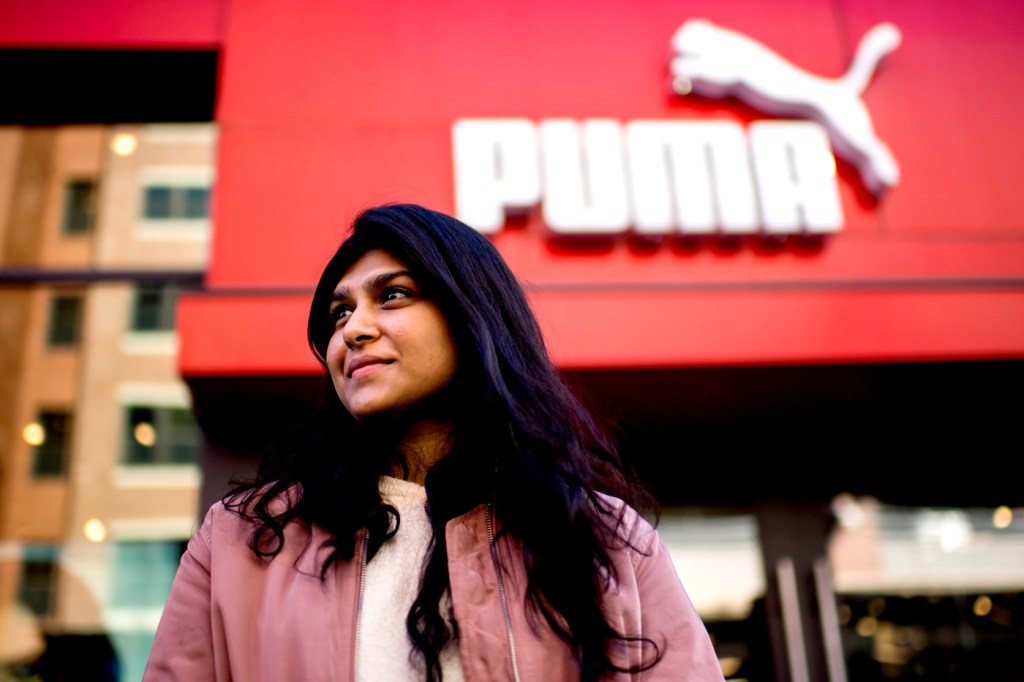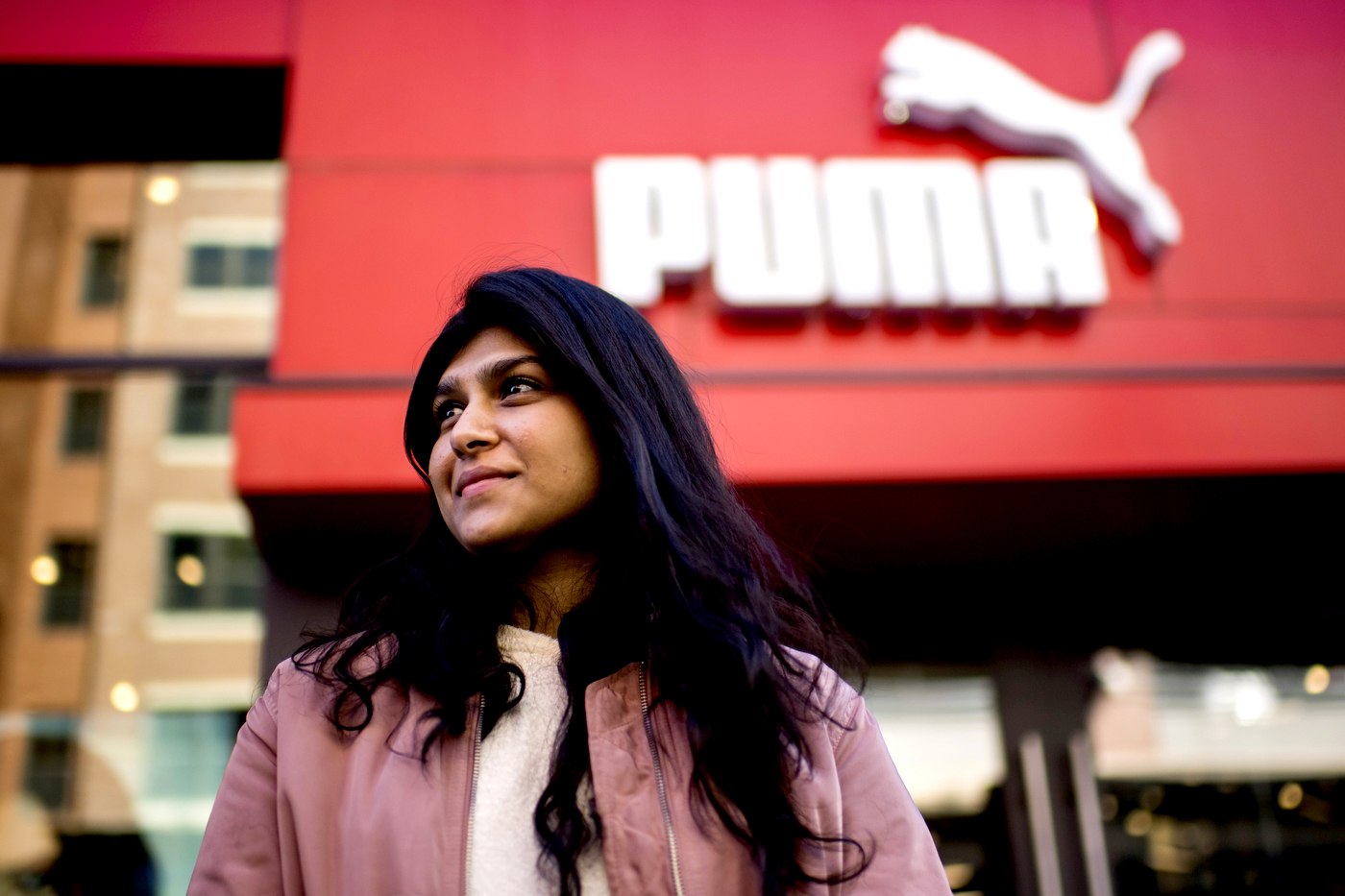When the supply chain buckled, this co-op at Puma laced up her sneakers and jumped in

Sakshi Agarwal, a third-year student majoring in marketing who wants to make a big splash in the fashion industry one day, is getting a lesson in resilience at her co-op with Puma, where she works in the German sportswear company’s U.S. offices.
“I make sure that we have enough inventory in the warehouses, which is a very important task,” she explains, because members of her team use that information for future inventory planning. Agarwal keeps close tabs on inventory using specific software to determine if products have arrived or, if not, when they will.
“They give me work which actually matters in the company,” she says.

‘They give me work which actually matters in the company,’ says marketing major Sakshi Agarwal of her co-op at Puma’s U.S. headquarters in Somerville, MA. Photo by Matthew Modoono/Northeastern University
Making sure there’s enough stuff on the shelves is the lifeblood of the retail industry. But global supply chain woes affecting the sneaker and apparel brand, along with dozens of other industries, is teaching her to accept what is beyond her control and think her way out of sticky situations.
“Unless we get products from the port, there’s not much we can do about it,” Agarwal says from Puma’s U.S. headquarters in Somerville, Massachusetts. “We try to work with the inventory we already have.”
If, for example, a particular product is listed as out-of-stock on the website but there are 1,000 pairs of sneakers in the warehouse, Puma will make sure the footwear gets to its destinations, including retail outlets.
Changing product lines according to inventory is one method of filling store shelves.
It works like this: if Puma planned on displaying product A for the month of September, but the inventory didn’t arrive on time, then it changes the product line and puts product B in-store for which it has sufficient inventory. Product A is then put in-store in a later month when the inventory finally arrives.
“This way we try to give our customers new products even during the pandemic by shifting our in-store plans,” Agarwal says.
Indeed, days before Agarwal’s interview with News@Northeastern, Puma’s chief executive, Bjorn Gulden, told reporters that port congestion and container shortages were hurting Puma’s product supply in the short-term. He predicted that supply constraints would continue for the rest of the year.



Agarwal works in the company’s retail merchandising department, which allows her to keep tabs on products and understand where fashion trends are going. Puma’s new U.S. offices combine sales and design teams under the same roof in the hope that the company will stay ahead of the curve in an industry where trends can change overnight.
Sales of footwear, its most popular offering, rose a strong 21% in the third quarter, which ended in September. “When it comes to sneakers, the Puma suedes do the best,” Agarwal says, referring to the iconic line. She owns a vintage pair herself, along with two other styles.
Supply chain snarls notwithstanding, Puma has new merchandise coming out next year. Agrawal was careful not to divulge any of it, but was more than happy to talk about the company’s past collaborations with A-list stars.
Singer Rihanna debuted a line of thick-soled Puma Creepers several years ago that reportedly sold out in a few hours. She followed that up with the unveiling of her Fenty apparel and footwear collection at New York Fashion Week. Dua Lipa is currently promoting the brand.
Puma is a major brand in India, where Agarwal’s father owns a steel business. Virat Kohli, captain of India’s national cricket team, has an endorsement deal, as does Indian actress Kareena Kapoor Khan.
When not keeping tabs on inventory, Agarwal’s co-op offers her creative time as well. She will often suggest designs for T-shirts and shoes. “Every day is different, and I get to work with all three departments―footwear, apparel, and accessories. Every time someone asks me about my co-op I just can’t stop talking about it,” she says.
The experiential work opportunity comes to end in a few months, and the experience has made her double-down on fashion as a career avenue. She is pursuing a minor degree in fashion at Northeastern. And the marketing classes in the D’Amore-McKim School of Business provided grounding in basics such as PowerPoint and Excel.
Those workplace skills, along with the self-confidence that blossomed with the in-person work at Puma, has helped her navigate different workplace cultures. “It has definitely helped me grow,” she says.
For media inquiries, please contact media@northeastern.edu.





